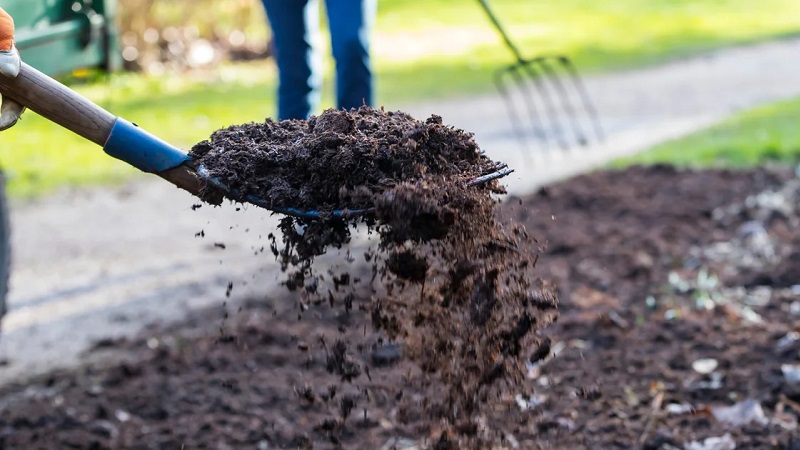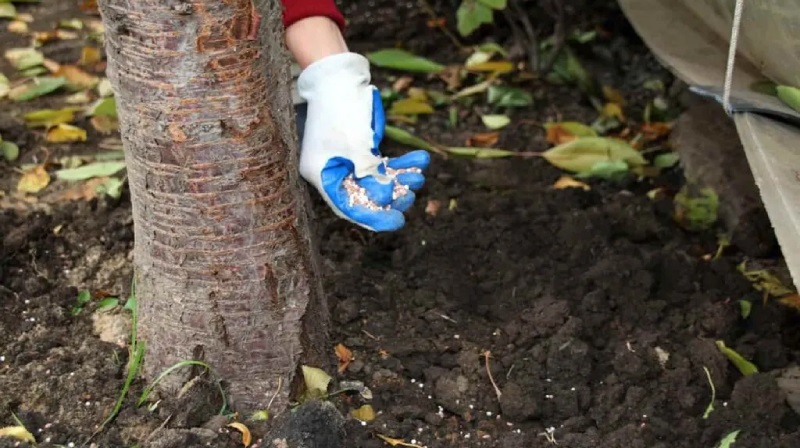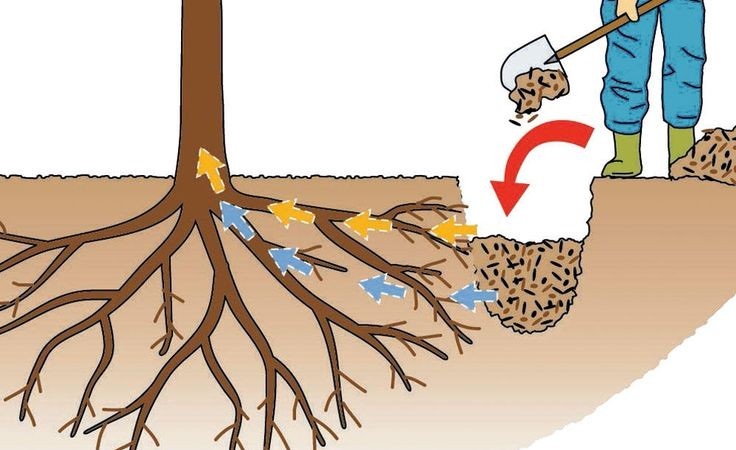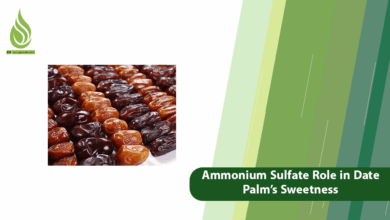
The best fertilizer you can use for fruit trees
For fruit trees to grow and bloom, it’s essential to meet their nutritional needs. Since plants and trees have varying requirements, recommending a specific fertilizer as the best for fruit trees is not possible. To choose the most suitable fertilizer for fruit trees, we must first determine the specific nutrients and food substances that our tree requires. This article will introduce the best fertilizers for promoting tree growth and fruiting, as well as guide how to identify the best fertilizer for fruit trees.
Impact of fertilizer on fruit tree Growth
The rapid growth of fruit trees and the abundance of tree produce are the most important goals of gardeners and farmers. To enhance tree growth, the necessary fertilizers must be applied to the trees.
Fruit trees need different nutrients to grow and produce fruit. The key nutrients required by plants and trees include nitrogen, phosphorus, potassium, calcium, magnesium, and micronutrients. These nutrients can be provided to the trees through organic manure, chemical fertilizers, and micronutrient fertilizers. By supplying the right amounts of these nutrients, tree growth and fruit production can be enhanced.

The growth of fruit trees is not solely dependent on fertilizer usage. For trees to grow and bear fruit, several conditions must be met. In addition to fertilization, the growth of fruit trees depends on various factors, such as tree type, environmental conditions, timely irrigation, orchard management practices, mechanical adjustments, and the genetic structure of the trees.
What is the best fertilizer for fruit trees?
For the growth and fruiting of trees, nutrient resources need to be made available to the tree. Nutrients reach the plant through organic fertilizers, chemical fertilizers, and micronutrients.
Organic Fertilizer
Organic fertilizers are a valuable source of nutrients for plants and trees. They are made up of animal manure (such as cow, sheep, and poultry manure), compost, and green manure. Other types of organic fertilizers include blood meal, soybean meal, and green sand. Typically, you will find the three English letters NPK on the packaging of organic fertilizers. These letters stand for the elements nitrogen, phosphorus, and potassium. The benefits of organic fertilizer for fruit trees are as follows:
- Organic fertilizer improves soil structure and increases water retention capacity.
- Organic fertilizers release nutrients slowly; they release nutrients gradually and continuously.
- Animal manures prevent soil erosion.
- Organic fertilizers contribute to increased soil aeration.
- Solid animal manures have high nitrogen content. These fertilizers help in the rapid growth of trees and increase fruiting and flowering.

Chemical Fertilizer
Chemical fertilizers are a type of nutrient-rich fertilizers that significantly influence the growth of trees and plants. They come in various types, providing different nutrient sources for plants and trees. Fertilizers that supply nitrogen, potassium, and phosphorus are some of the most important chemical fertilizers used for trees.
Chemical fertilizers are absorbed quickly and show positive effects within a few days of application. However, they are more likely to cause leaching of nutrients from the soil compared to natural fertilizers. This means that heavy rainfall or excessive irrigation shortly after fertilization can wash out nutrients from the soil, resulting in the loss of nutrients provided by chemical fertilizers.
Micronutrients
Micronutrient fertilizers are those that provide essential nutrients like nitrogen, potassium, and phosphorus in small quantities but are crucial for plant growth. Among the most important micronutrients are fertilizers containing iron, zinc, manganese, boron, copper, and chlorine. These resources are vital for the growth and optimal performance of plants.
The best method for fertilizer application involves using a balanced combination of organic and chemical fertilizers along with micronutrients, which are given to the tree throughout the growing season. The amount of fertilizer needed varies depending on the type of tree, age, soil conditions, and environmental factors, and it is advisable to consult with an agricultural expert.
What other factors affect the growth of fruit trees?
Farmers fertilize fruit trees to promote growth and increase fruit production. However, fertilizing alone cannot maximize tree growth. In addition to fertilization, environmental conditions play a crucial role in plant growth. Some of the key factors influencing tree growth include:
- Adequate light conditions
- Optimal temperature
- Proper air humidity
- Regular soil irrigation
- Weed control around the trees
- Timely use of pesticides and agricultural chemicals, including fungicides
- Pruning and maintaining the tree branch height
- Proper spacing between trees
- Winter care for trees
- Identifying the best fertilizer for fruit trees
To find the best fertilizer for your fruit tree, you need to know their nutritional needs. Start by understanding the elements and quantities in your soil. Fruit trees usually display nutrient deficiencies later on, so it’s important to take soil samples to assess their needs. These samples are sent to soil analysis laboratories to measure nutrient levels and salts. The test results will show which nutrients your trees lack.

The best fertilizer for fruit trees in different seasons of the year
Spring Season
For fertilizing trees in the spring, the best option is to use fertilizers that contain nitrogen. Nitrogen-rich fertilizers greatly enhance the growth and fruiting capabilities of trees. These fertilizers impact plant metabolism, promote faster sprouting and growth of new leaves and provide a boost of energy during the initial growth phase.
Summer Season
During the summer season, it is recommended to use balanced fertilizers for feeding trees. These fertilizers consist of the right mix of the three main essential elements for plants: nitrogen (N), phosphorus (P), and potassium (K). By supplying essential nutrients at the same time, balanced fertilizers are a good choice for the balanced and optimal nutrition of plants.
Fall Season
After harvesting crops in the fall season, you can apply organic fertilizers to the soil. However, it is also acceptable to use other fertilizers such as organic and micronutrients. The best fertilizer for fruit trees in the fall season is humic acid fertilizer. This fertilizer darkens the soil, increasing sunlight absorption, and also enhances soil aeration.
Winter Season
Humic acid fertilizer is ideal for fertilizing trees during the winter season. This type of fertilizer enhances sunlight absorption and is especially effective for fruit trees during winter. It also promotes better seed germination in the future. Slow-release fertilizers such as organic fertilizers can also be highly beneficial for trees during the winter season.

Important Tips for Buying the Best Fertilizer for Fruit Trees
Now that you are familiar with the various fertilizers needed for trees, you should also know the important tips for fertilizing trees. When buying fertilizer for fruit trees and applying it, consider the following points:
- Apply fertilizers at the appropriate time and season to the soil for maximum impact and efficiency.
- Following the fertilizer application guidelines based on the type and age of the tree is essential.
- Purchase fertilizer only from reputable physical and online fertilizer suppliers.
- Some fertilizers may neutralize each other’s effects; therefore, if you intend to mix fertilizers, consult with an agricultural expert before doing so.
- The needs of each fruit tree may vary. Therefore, if you have different trees, fertilize them according to their specific needs and a defined schedule.
- Conduct a soil test before fertilizing to assess the soil’s requirements.
- The best fertilizers for newly planted trees are organic fertilizers. Usually, animal manure or compost is spread around the tree to increase the biological activity of the soil, leading to maximum growth of newly planted trees.
- After two years of planting a seedling or tree, it acquires the necessary strength for growth and can receive various types of fertilizers. In such conditions, you can apply the necessary fertilizers to the tree.
- Avoid over-fertilizing fruit trees at all costs. Excessive fertilization not only does not promote faster tree growth but also deteriorates the tree’s roots over time.
- Regular fertilization of trees not only promotes tree growth and stem, leaf, and root development but also affects flower production and quality fruit yield.
- Trees require nutrient resources at every stage of growth (vegetative, flowering, etc.). A lack of nutrients leads to a decrease in the tree’s growth rate and fruit production.
- In winter, fertilization is usually done using the chelate method. In chelate fertilization, substances and elements are slowly released, gradually providing necessary elements to the tree over time.
- Fertilizers used in the spring and summer are usually quickly absorbed and have an immediate effect on trees.
- Nitrogen is the primary requirement for plants and trees. There are various types of nitrogen fertilizers available. Ammonium sulfate crystal fertilizer is one of the best nitrogen sources for fruit trees.
